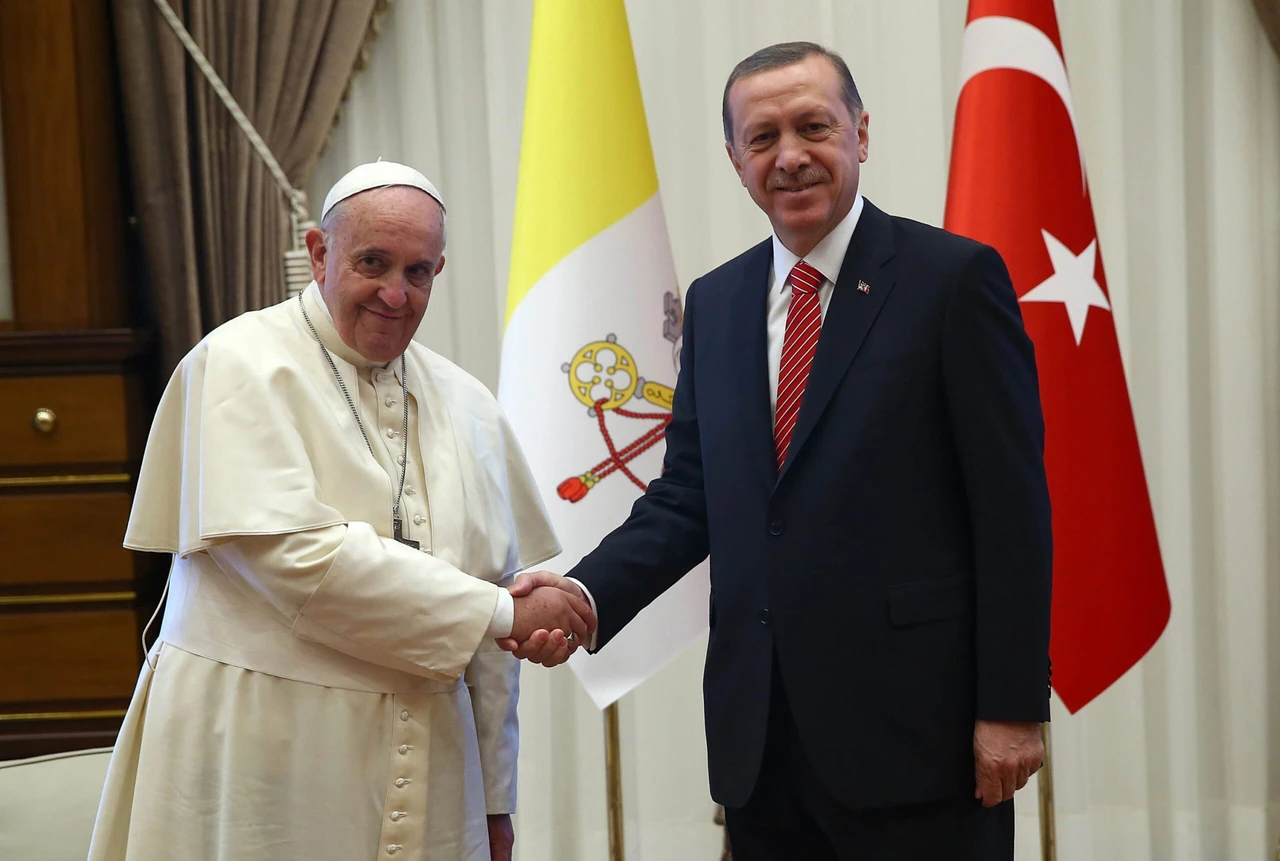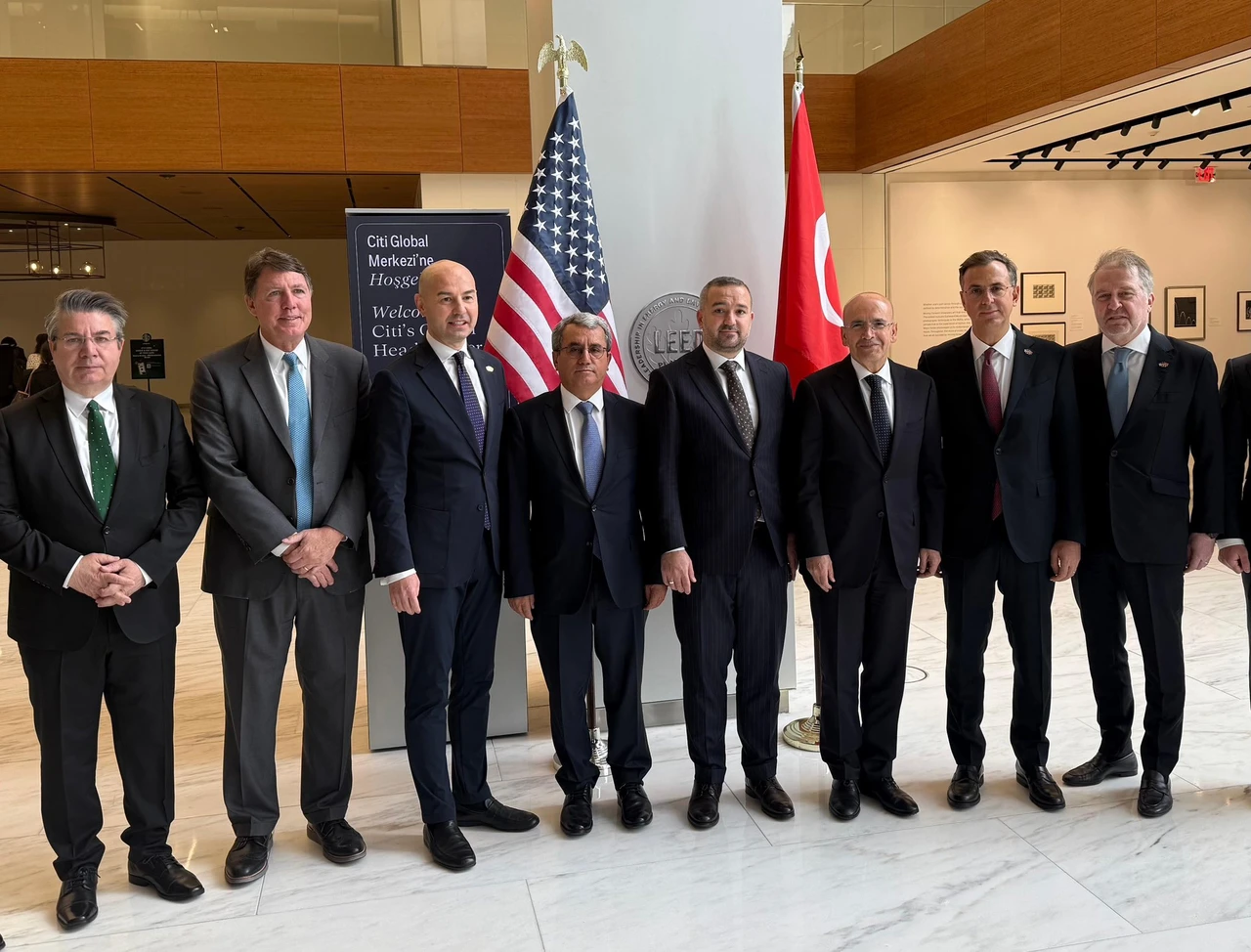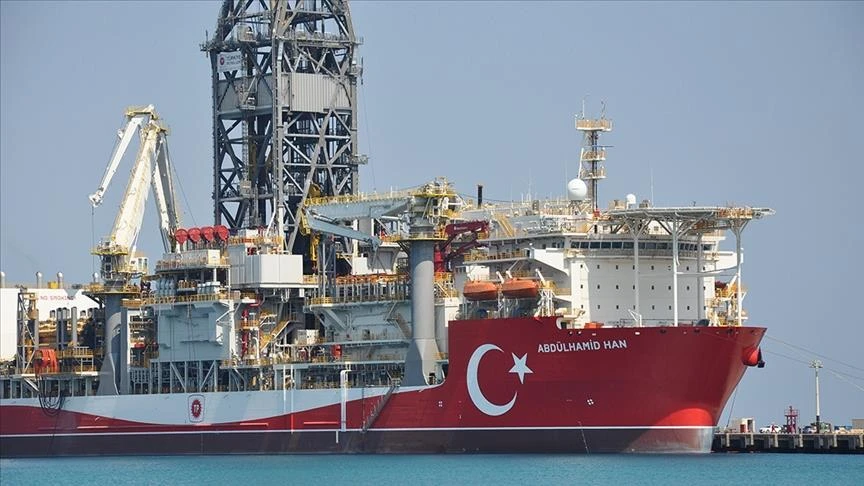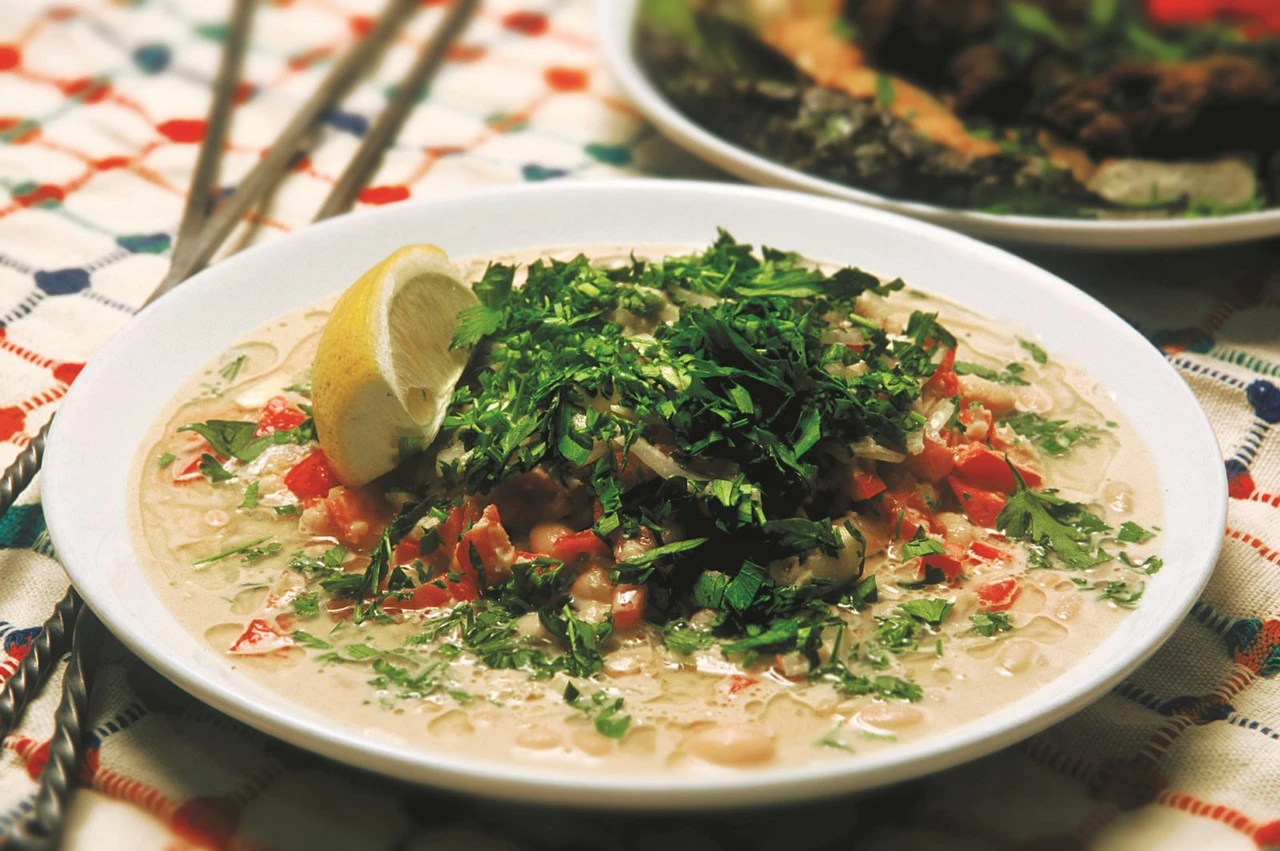Türkiye to be strategic hub for UN World Food Programme
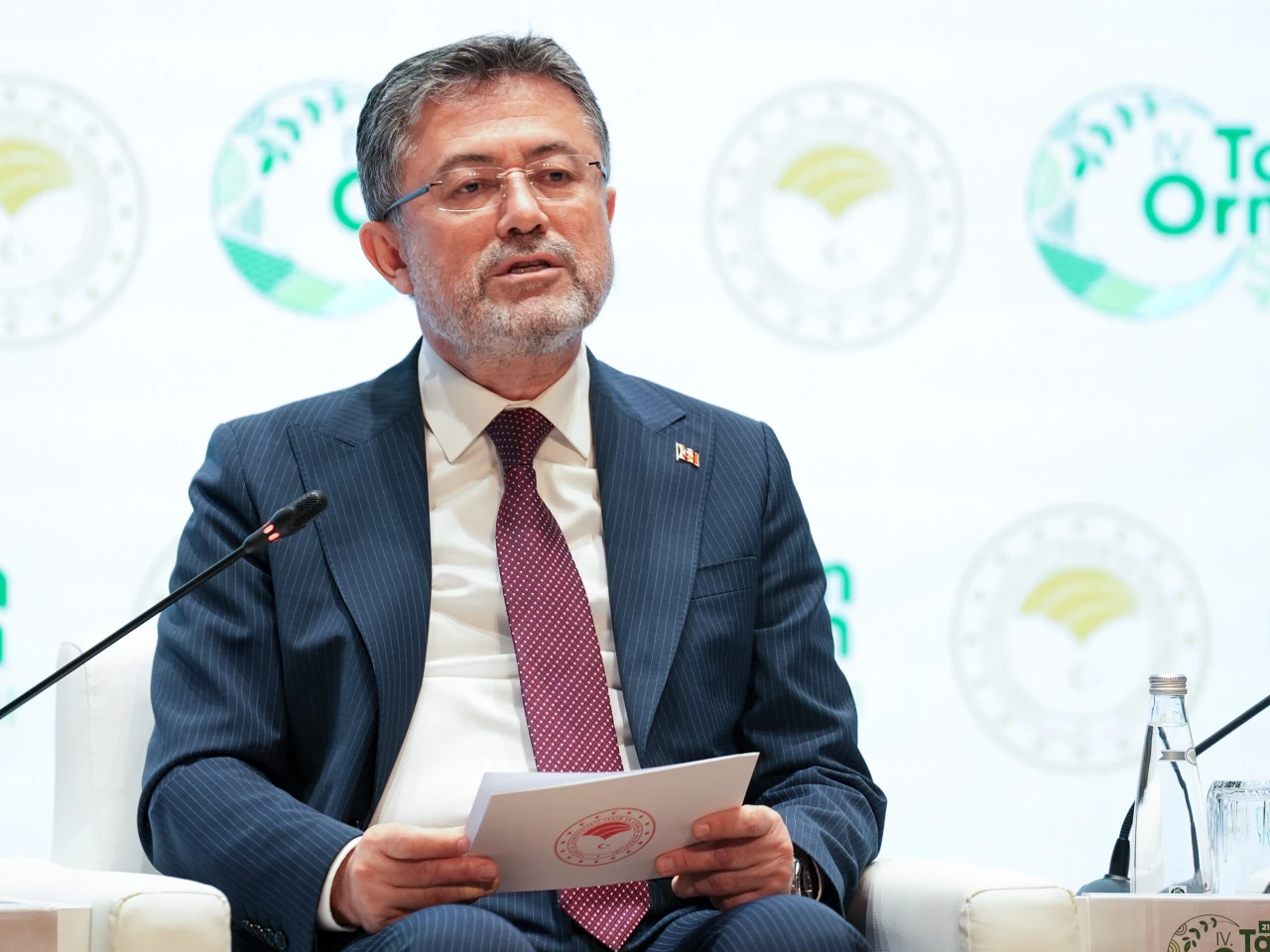 Turkish Agriculture and Forestry Minister Ibrahim Yumakli delivers a speech at the 'Agricultural Diplomacy Forum' held in Istanbul, Türkiye, on April 21, 2025. (AA Photo)
Turkish Agriculture and Forestry Minister Ibrahim Yumakli delivers a speech at the 'Agricultural Diplomacy Forum' held in Istanbul, Türkiye, on April 21, 2025. (AA Photo)
Türkiye’s Agriculture and Forestry Minister Ibrahim Yumakli announced on Monday that the World Food Programme (WFP), the United Nations agency responsible for delivering food assistance during emergencies and building long-term food security, has proposed positioning Türkiye as a “strategic stock center” for regional and global food reserves.
These centers function as key logistical hubs designed for the storage and rapid deployment of essential food supplies in response to natural disasters, conflicts, or supply chain disruptions.
“All assessments have been completed. With the support of our President, Recep Tayyip Erdogan, we expect Türkiye to be designated as a strategic stock hub,” Yumakli stated.
The announcement was made during a special session titled “Agricultural Diplomacy in Today’s World,” held as part of the upcoming Fourth Agriculture and Forestry Council. The session was organized at the Foreign Trade Complex of the Turkish Exporters Assembly (TIM) under the framework of the “Agricultural Diplomacy Workshop.”
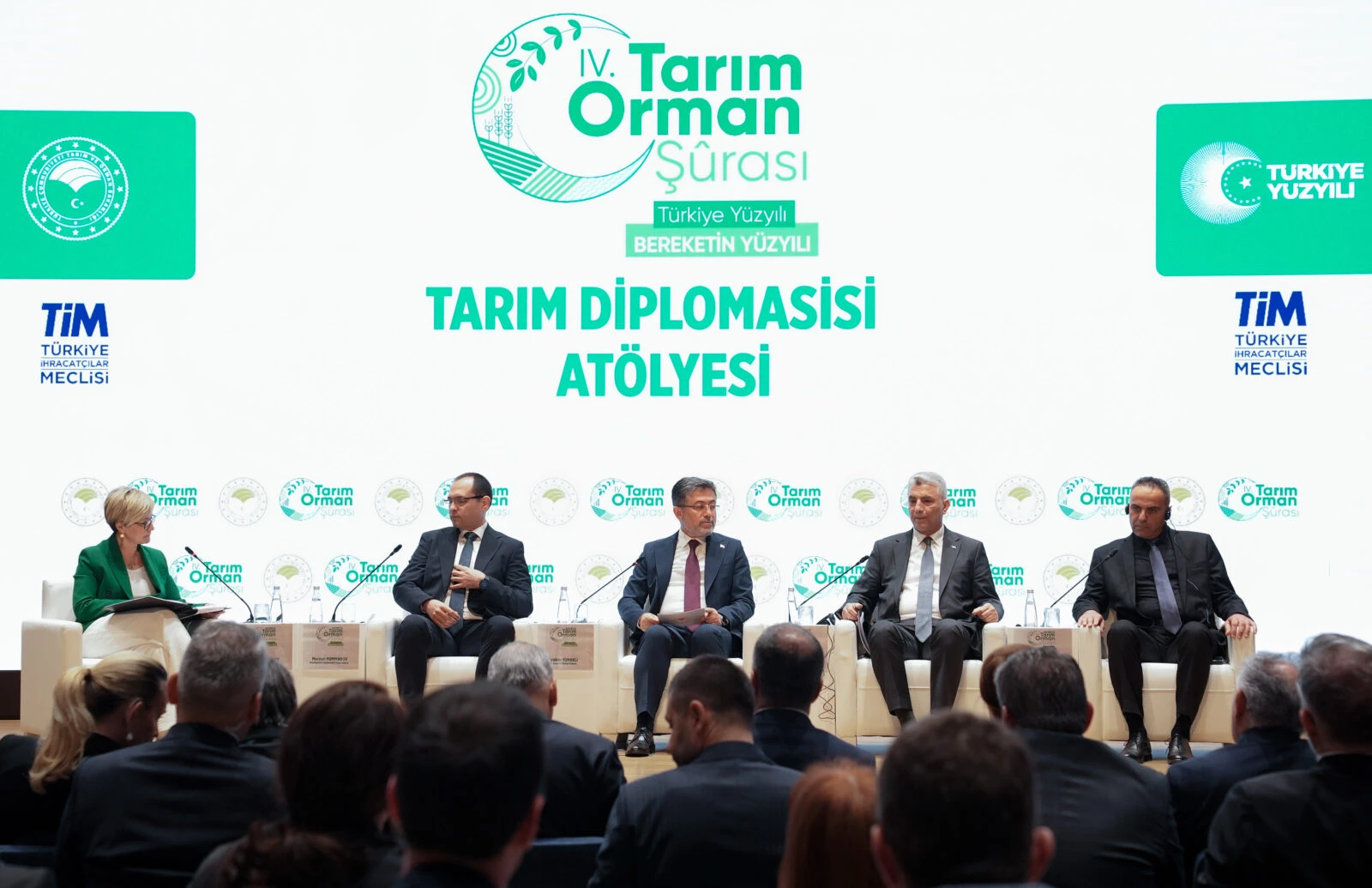
Responding to questions during the event, Minister Yumakli emphasized the growing importance of agricultural diplomacy. He noted that food-related issues increasingly shape diplomatic perspectives, especially in the aftermath of global crises, which often trigger debates over food security and production self-sufficiency.
‘Türkiye is largely self-sufficient in strategic products’
Highlighting Türkiye’s geographic proximity to crisis-prone regions, Yumakli pointed out that this positioning provides a significant logistical advantage in delivering food swiftly to areas in need. He also underscored that Türkiye is capable of meeting a substantial portion of its demand for essential agricultural goods.
The minister elaborated on national initiatives aimed at preserving water resources for future generations, including the Water Efficiency Mobilization campaign. He reiterated Türkiye’s commitment to sustainable agricultural development and emphasized that strategic policies have been implemented to achieve these long-term goals.
“We also have a vision to turn our country into a hub for international organizations,” Yumakli added. “In this context, we continue to work with the United Nations and other global institutions to encourage them to open offices in Türkiye. Many of these organizations not only operate within Türkiye but also carry out projects across Europe and Central Asia.”
Yumakli highlighted the strong, cooperative relationships Türkiye has developed with numerous countries through agricultural diplomacy, based on mutual respect and collaborative project development. “These are partnerships in which both sides benefit,” he said. “Türkiye has an established tradition of aligning action with discourse, which reflects its longstanding statehood experience.”
“No country in the world is entirely self-sufficient; self-sufficiency operates on a spectrum. In this context, Türkiye is largely self-reliant when it comes to strategic agricultural products,” Yumakli underscored, referring to the challenges facing Türkiye’s agricultural sector, including adverse weather conditions such as frost.
